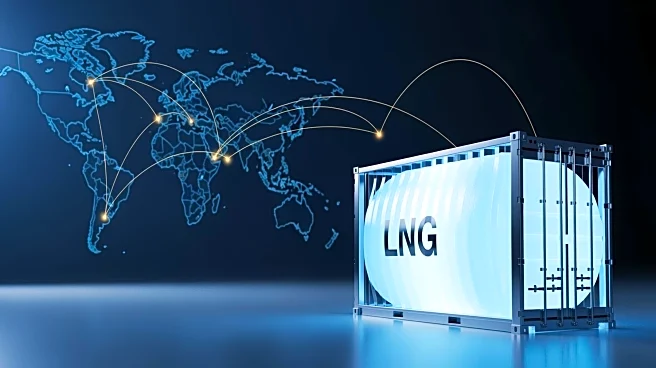What's Happening?
Ukraine has announced a deal to import U.S. liquefied natural gas (LNG) through Greece, aiming to secure energy supplies amid Russian attacks on its infrastructure. The agreement was reached after Ukrainian
President Volodymyr Zelensky met with Greek Prime Minister Kyriakos Mitsotakis. Greece is increasing the flow of American LNG to replace Russian gas in the region. The European Commission plans to ban all imports of Russian gas to EU member states by 2027, citing the funding of Russia's war in Ukraine. The LNG will be transported via a pipeline across the Balkans, with deliveries starting in January.
Why It's Important?
The import of U.S. LNG is vital for Ukraine as it faces potential energy shortages due to Russian attacks on its energy facilities. This deal helps Ukraine diversify its energy sources and reduce dependence on Russian gas, aligning with EU efforts to cut ties with Russian energy. The agreement also strengthens Ukraine's energy security and supports its resilience against Russian aggression. It highlights Greece's role as an energy provider in the region and underscores the geopolitical significance of energy supply routes.
What's Next?
Ukraine is expected to begin receiving U.S. LNG in January, with funds allocated for gas imports from European partners and banks. The deal may lead to further energy cooperation between Ukraine and Greece, potentially influencing regional energy dynamics. The European Commission's ban on Russian gas imports by 2027 could accelerate similar agreements across Europe, reshaping the continent's energy landscape.
Beyond the Headlines
The shift towards U.S. LNG imports reflects broader geopolitical changes in energy supply chains, as countries seek to reduce reliance on Russian energy. This development may impact global energy markets and influence future energy policies in Europe and beyond.










